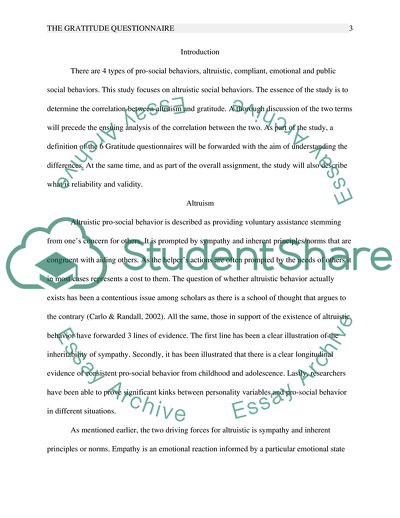Cite this document
(The Gratitude Questionnaire Lab Report Example | Topics and Well Written Essays - 1500 words, n.d.)
The Gratitude Questionnaire Lab Report Example | Topics and Well Written Essays - 1500 words. https://studentshare.org/psychology/1813804-the-gratitude-questionnaire
The Gratitude Questionnaire Lab Report Example | Topics and Well Written Essays - 1500 words. https://studentshare.org/psychology/1813804-the-gratitude-questionnaire
(The Gratitude Questionnaire Lab Report Example | Topics and Well Written Essays - 1500 Words)
The Gratitude Questionnaire Lab Report Example | Topics and Well Written Essays - 1500 Words. https://studentshare.org/psychology/1813804-the-gratitude-questionnaire.
The Gratitude Questionnaire Lab Report Example | Topics and Well Written Essays - 1500 Words. https://studentshare.org/psychology/1813804-the-gratitude-questionnaire.
“The Gratitude Questionnaire Lab Report Example | Topics and Well Written Essays - 1500 Words”. https://studentshare.org/psychology/1813804-the-gratitude-questionnaire.


